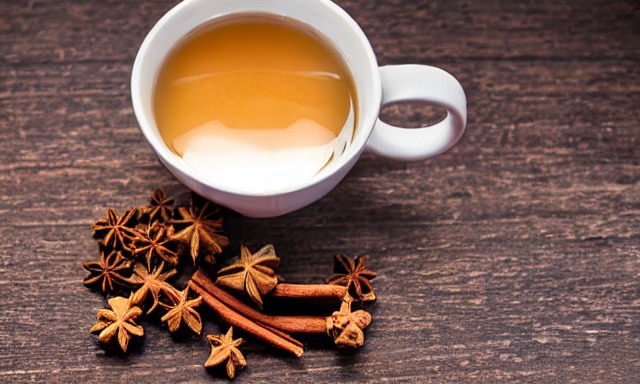Internet Asks: “How Much Caffiene in Chai?”
Step into a world of aromatic spices and warm flavors as we embark on a delightful quest to uncover the caffeine content of chai. Chai, also known as masala chai, has captured the hearts and taste buds of tea enthusiasts worldwide. But how much caffeine does this beloved elixir actually contain? Join us as we dive into the intriguing world of chai and demystify its caffeinated secrets.
sponsored links

Decoding the Caffeine Conundrum
Let's start by unraveling the caffeine conundrum. Chai, at its core, is a blend of black tea and a captivating combination of spices. Black tea, derived from the Camellia sinensis plant, naturally contains caffeine. Therefore, the caffeine content in chai primarily stems from the black tea leaves used in its preparation. However, the exact caffeine levels can vary based on several factors.
The Chai Caffeine Spectrum
The caffeine content in chai can range from moderate to high, depending on various factors such as the strength of the tea used, brewing time, and the specific recipe. Chai is typically made with black tea as its base, which naturally contains caffeine. However, the specific amount of caffeine can vary based on the type of black tea, the brewing time, and the proportion of tea to other ingredients.
On average, an 8-ounce cup of chai made with black tea can contain approximately 25-50 milligrams of caffeine. It's important to note that these numbers are approximate and can vary depending on individual recipes and serving sizes. Compared to a cup of coffee, which typically contains around 95 milligrams of caffeine for an 8-ounce serving, chai tea generally has a lower caffeine content.
Embracing Caffeine-Free Chai
If you prefer to enjoy chai without the caffeine, there are decaffeinated versions available that have undergone a process to remove most of the caffeine while retaining the flavors of the spices. Additionally, there are caffeine-free herbal chai blends that replace the black tea with herbal infusions like rooibos or chamomile, providing a delightful and caffeine-free alternative.
Conclusion
In the world of chai, caffeine plays a role in enhancing its invigorating nature. The caffeine content in chai can vary, typically ranging from moderate to high levels. However, decaffeinated chai options and herbal chai blends provide alternatives for those seeking a milder or caffeine-free experience. So, whether you embrace the energizing allure of chai or prefer a more relaxed and caffeine-free indulgence, there's a chai blend tailored to your preferences.
Disclaimer: The information provided in this article is for informational purposes only and should not be considered as medical or professional advice. The caffeine content mentioned is approximate and can vary based on factors such as tea type, brewing method, and individual preparation.
sponsored links
References
- USDA. Tea, hot, leaf, black.https://fdc.nal.usda.gov/fdc-app.html#/food-details/2346058/nutrients
- Chai Direct. Decaf-Caffeine Free. https://chaidirect.com/decaf-caffeine-free-chai/#:~:text=Numi%20Rooibos%20Chai%20Tea,the%20perfect%20after%2Ddinner%20treat
- Harvard School of Public Health. Caffeine. https://www.hsph.harvard.edu/nutritionsource/caffeine/
- Sencha Tea Bar. Chai Tea Benefits. https://senchateabar.com/blogs/blog/chai-tea-benefits
People are also reading...
Does Sprite Have Caffeine?
Calories In Steak?
Chicken Taco Calories?
Does Hot Chocolate Have Caffeine?
Are Carrots Acidic?
Are Mangoes Acidic?
Orange Juice pH?
Does Kahlua Have Caffeine?
Calories In a Grilled Cheese?
Is Watermelon Acidic?
6 oz Steak Calories?
Are Strawberries Acidic?
Ready to level-up?
Create meal plans 10x faster, follow up with your clients through our mobile app, and never struggle with meal planning or recipe management again.